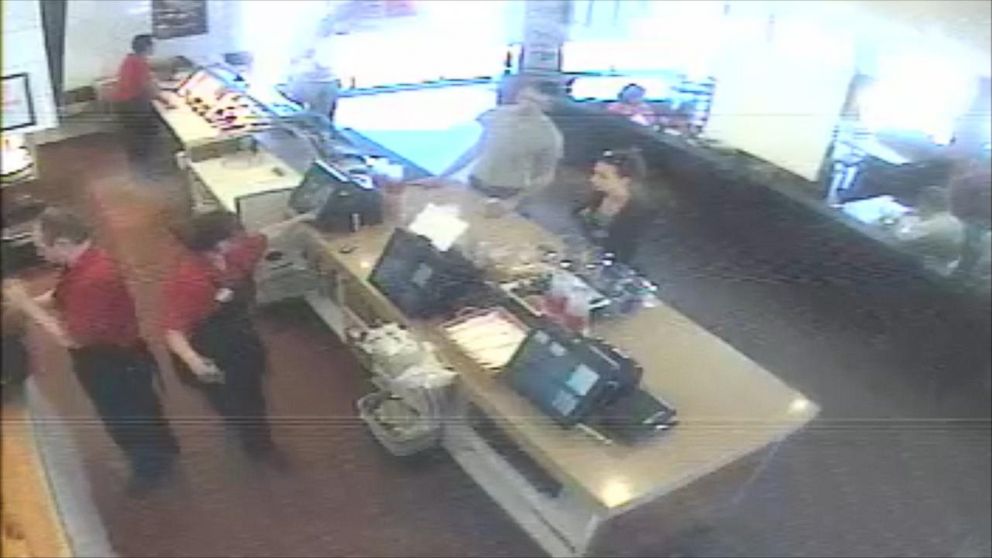Colorado Family's Desperate Search to Find Their Murdered Teenage Daughter
Lea Porter was just 19 years old when she mysteriously vanished.
— -- Lea Porter was just 19 years old when she mysteriously vanished from a suburb of Denver in June 2014.
More than two years later, she still hasn’t been found.
Her mother, Rene Jackson, launched her own investigation to find her daughter, tramping through the winding dusty mountain trails of central Colorado with search dogs.
“I just can’t accept the fact that I don’t know where my daughter is,” Jackson told ABC News’ “20/20.” “I can’t live with that.”
Jackson has consulted psychics, memorized police records and paid travel expenses to volunteers to go help her search for her daughter.
Lea Porter grew up near Cotopaxi, Colorado, a tiny community with a population of less than 50 people and a century-old general store.
Jackson said her daughter is very social and kind of a joker, who had a lot of friends and loved her brother Maxx.
“She was basically like my best friend,” Maxx Porter said. “We did everything together. Listened to the same music. Did the same things. Fought like brother and sister all the time… and we were really close.”

At Cotopaxi High School, she was an average student academically, more interested in hanging with the artsy crowd and listening to electronic music, recording her every move on her cellphone.
“She was kind of a selfie hound, which I used to make fun of her,” Jackson said.
But as she got older, her friend Malorie Nixon said Porter started down a dark path. She secretly dropped out of college where she was studying massage therapy and was still a teenager when she moved in with a 38-year-old man named Jesse Mine, a tattoo artist. Nixon said the older man introduced Porter to drugs.
“It got bad right away,” Nixon said. “We were going to a concert together and as we were driving up to Denver, she said, ‘I did heroin for the first time, and I’m hooked on it.’ It broke my heart. It really did.”
Nixon said she tried to get back on track. In the days before she went missing, Nixon said Porter was trying to kick her heroin habit and was attended Narcotics Anonymous meetings.
“The day before she went missing, I saw her down in Pueblo, and she had been off of it for three days,” Nixon said. “You could tell, she was super sick.”
Mine broke up with Porter about six months into their relationship to move to the East Coast, leaving her with no place to live. So she packed up her things and started driving to Denver, posting on social media along the way to tell friends she was looking for a place to stay and asking for help.
But by June 3, 2014, Porter was missing.
“I knew there was something wrong right away because I couldn’t get a hold of her,” Maxx Porter said. “It was just days of calling back and calling, calling, calling, calling.”
Maxx and his mother went to the police who later brought in Jesse Mine for questioning. Mine told police he and Lea Porter had an emotional breakup that left her depressed. The last time he saw her, Mine told police, was in a motel parking lot near Denver where they said goodbye to each other. He told police during his interrogation that he was headed to his parents’ house in Maryland to try and get clean while she went off to Denver to crash with friends.
Mine told police that right after they separated, Porter stopped texting him, which he thought was odd because she was always on her phone, but he didn’t become worried until he got a call from her brother.
“When Maxx called me and said, ‘Yo, dude, where’s my sister?’ That’s when I was like, ‘----. Something bad has happened,’” Mine said during his police interrogation, saying Maxx and Lea spoke daily.
Police determined Mine had a strong alibi and wasn’t a suspect. Meanwhile, Lea Porter's mother started going through her daughter’s phone records, calling every number on the list.
“This one number kept popping up over and over,” Jackson said. “It was Christopher Waide ... and I had never heard that name before.”
Waide, then 23 years old, had gone to high school with Porter. He was good student, involved with choir and drama, and had joined the Army after high school where he worked as a helicopter mechanic. After serving for two years, he came back home to go to college, majoring in criminal justice because he wanted to be a police officer.
Jackson said she called Waide. He told her he was Lea’s accountability partner — a kind of sponsor — helping her stay clean. Waide also told her that after a few hours, Porter left abruptly without explanation and he hadn’t seen her since.
“That was the first time I heard that she had been on drugs was from Christopher,” Jackson said.
Jackson went to police to tell them about Waide. When he was questioned, Waide told officers that he had seen Porter’s posts on social media asking for help and offered to help her move. After she went missing, he even joined the search, posting pleas on social media to find her while her family posted missing person posters all over Colorado.
“He put it out there that he really wanted to help find Lea,” said Westminster Police Detective Matt Calhoon. “And he’s really concerned about her, and he wanted to do anything to help us.”

But police were suspicious of Waide. With his permission, they searched his two-bedroom apartment in Westminster, Colorado, where they made a couple of discoveries. Police said the apartment was dirty, with video games, soda bottles, leftover takeout, clothes and dishes all over the floor.
“It was hard to be in that apartment,” Calhoon said. “It smelled pretty bad.”
But worst of all, police said, was Waide’s bedroom, where he had clothes, coupons, computers and a twin mattress on the floor without any sheets on it and no pillowcases on the pillows. Police said they found bondage websites on his computer search history, strange stains on the mattress and a duffel bag full of size 14 women’s underwear — too big to fit the petite, 98-pound Lea.
“It caught my attention for sure,” Calhoon said. “He jumped up real quick and said, ‘No, no, those are mine. I wear them because they’re more comfortable.”
Then police found a knife in the bedroom alongside the mattress, which they said had bleach spots on it.
“He claimed that he cut his hand about a week and a half earlier and he explained that’s why he bleached his knife,” Calhoon said. “So that’s when we actually asked him to come in for a formal interview at the police station.”
At the police station, Waide told police that Lea had come on to him.
“We were just getting ready to get back into the video game, then she leaned in and kissed me, and I kissed back,” Waide said during his questioning, and he went on to say that the kissing led to their having sex in his bedroom.
Waide told police he removed the sheets and pillowcases from his bed afterward, but given the state of his apartment, detectives said they weren’t buying his story. He then told detectives that when he got that phone call from Porter’s mother, he panicked and trashed the sheets.
“We started turning the heat up,” Detective Mike Lynch told ABC News. “And I asked him, ‘Where's the body at?’ I says, ‘Is that body out there with the cellphone? Did you kill Lea Porter?’”
Eventually, Waide confessed to killing her.
And Robert Wells, one of his professors and a mentor, came forward saying Waide could have learned how to cover up the murder from his class.
"We teach everything in criminal justice," Wells told ABC News. "Interview interrogation, report writing, crime scene management, forensics ... how to clean up a crime scene, some of the challenges police have in making sure that all the evidence is acquired — these are things they're learning."
Find out what happens in the full episode of ABC News’ “20/20” HERE.




